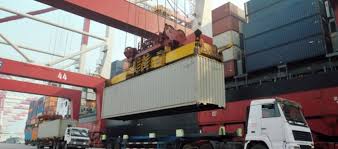By Samson Echenim
Manufacturers, exporters and importers in Nigeria have begun series of meeting to assess the ECOWAS Common External Tariff to determine areas to effect changes for a more favourable trading as the regime faces review in 2020.
The manufacturers and shippers begun meetings Thursday last week, with the paper called the 6Ps, domestic & industry plastic, wood and furniture, motor vehicle and electrical/electronic sectors meeting on Friday.
The manufacturers will determine how ECOWAS CET has affected Nigeria’s foreign trade; which sectors are benefitting or losing; gains and losses; and adjustments the manufacturers want from the regime.
AdeyemiFolorunso, who coordinated the meetings on Friday said the report of each sector would be harmonized and sent to office of ECOWAS in Abuja this week.
“We have called this meeting because we do not want to use our residual knowledge. We know that manufacturing and issues of trade are dynamic, so we want to capture new development in the industry,” he said.
According to him, some ECOWAS countries were getting into bilateral and unilateral trade agreements with countries overseas or outside the region and the development was putting pressure on such member countries to defile the rules of the CET which they signed with other West African countries.
He therefore charged members to be vigilant and report products in the ECOWAS market which do not originate from the country of claim, thereby violating the rule of origin.
“Once a country signs the CET, it must abide by it. Manufacturers must all be involved in market intelligence so that when you observe any product coming in from other countries other than the country where it is claimed to be manufactured, you report. We will take it up. It means the country which allows such has violated the CET agreement which it signed,” Folorunso noted.
Fifteen member states of the Economic Community of the West African States (ECOWAS) adopted on October 2013 a Common External Tariff (CET) with the aim of strengthening and accelerating regional integration.
In 2017, the Nigeria Customs Service reported that Nigeria had implemented about 70 per cent of the requirements of the ECOWAS CET.
A common external tariff is introduced when a group of countries form a customs union. It implies that the same customs duties, import quotas, preferences or other non-tariff barriers to trade apply to all goods entering the area, regardless of which country within the area they are entering.
The CET which came into force in January 2015, is expected to foster a common market and remove trade obstacles to free movement of persons and goods within West African countries.
The ECOWAS CET operates with five percent tax on goods imported from member countries, but an Import Adjustment Tax (IAT) of up to 100 percent could be placed on certain goods to discourage their importation into a member country where such goods are being manufactured locally.










